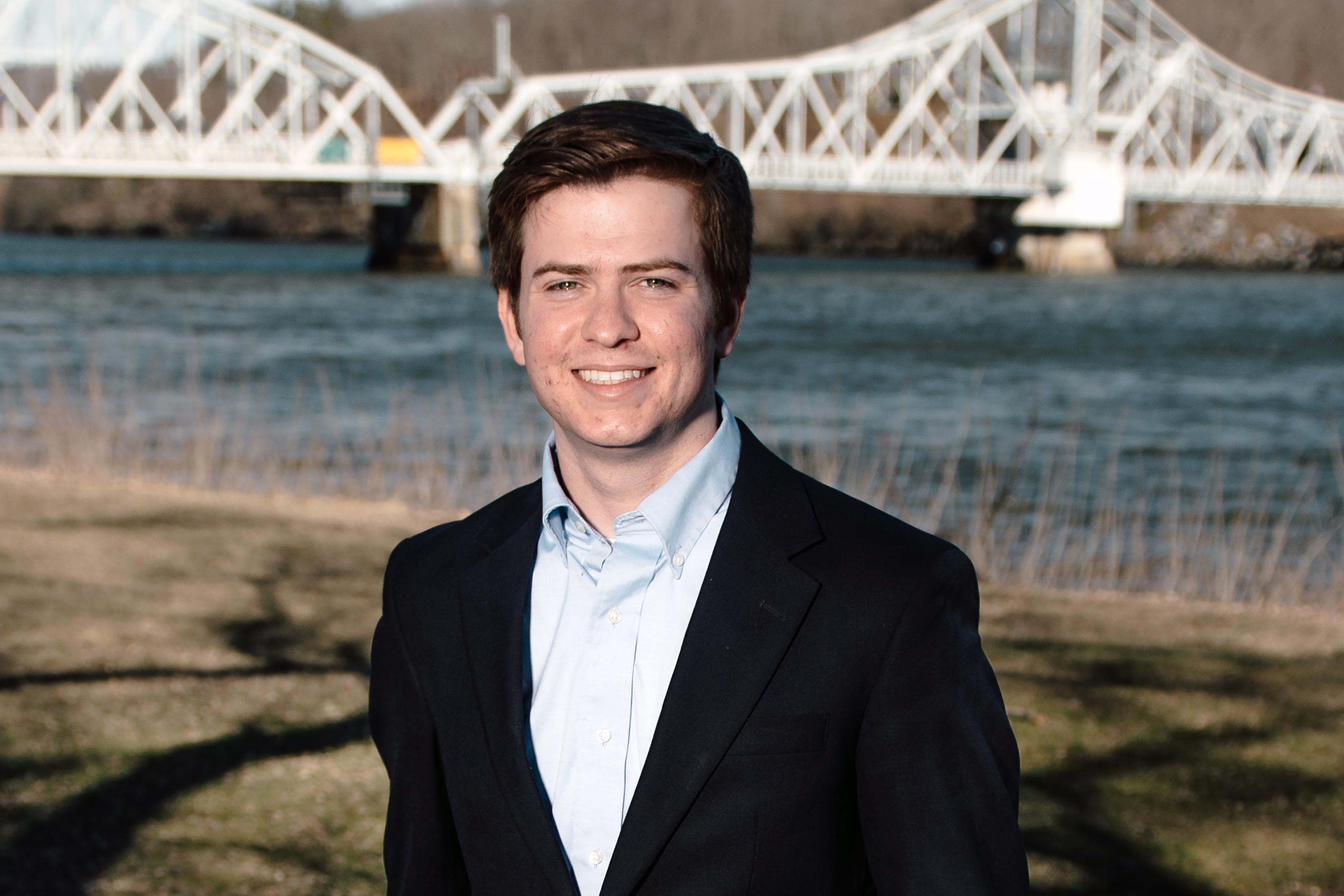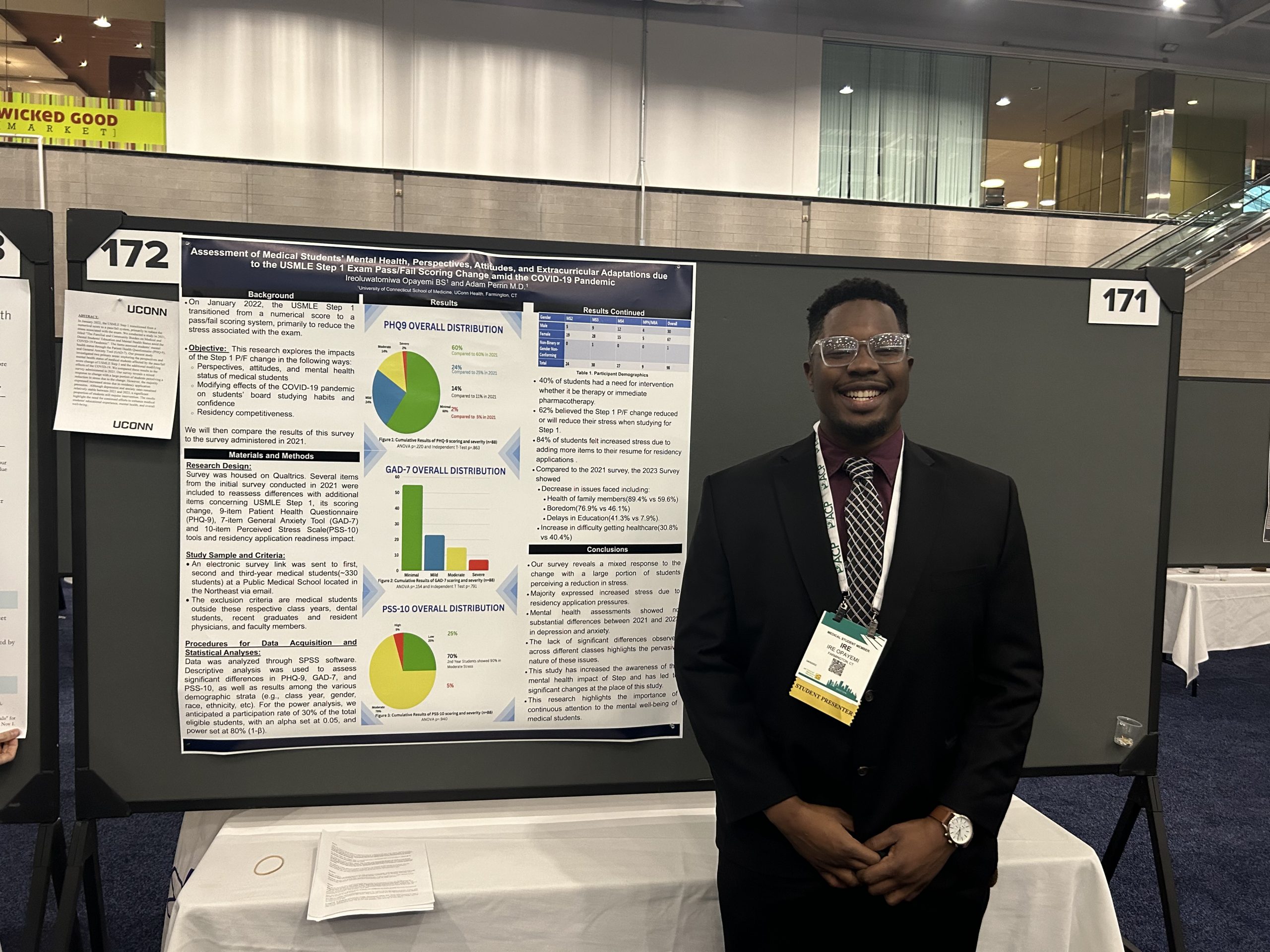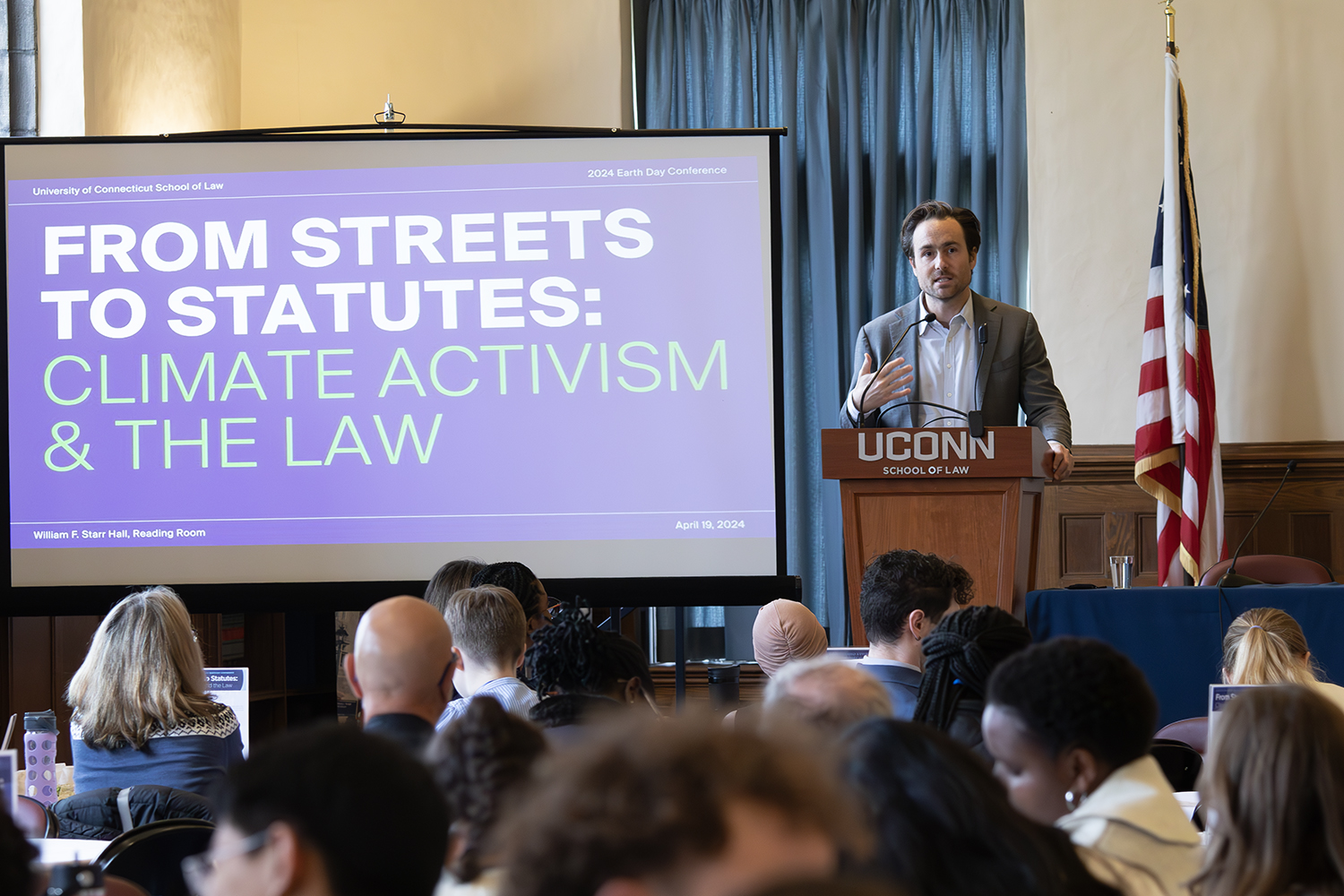In the middle of a June night in 1983, a 100-foot span of the Mianus River Bridge in Greenwich, Conn., collapsed, plunging two cars and two tractor-trailers into the river 70 feet below.
Three people died, three were seriously injured, and diverted I-95 traffic snarled local streets for six months. Inspections revealed that an undetected fatigue crack caused the catastrophic bridge failure.
Kevin McMullen, a structural engineering Ph.D. student at UConn, is too young to remember that tragedy. But he has designed a bridge-safety monitoring device that might have prevented it. He’s hoping his company, NexGen Infrastructure, can revolutionize transportation safety.
Using force-sensing pads that continuously monitor bridges, the system can warn engineers about a bridge that is overstressed. The pads can be installed on a new bridge or one that is being repaired. The system doesn’t replace human inspection, but can help establish priorities in a nation where one in 10 bridges is structurally deficient.
“Our hope is that if something is going drastically wrong with a bridge, engineers would be alerted that the bridge needs to be inspected right away,’’ he said. “We are anticipating that the federal government and state departments of transportation will feel it is a worthwhile investment.’’
McMullen recently received a $40,000 grant from the UConn School of Engineering in partnership with Connecticut Innovations. This award is given to engineering students with promising technologies, to help them enter the marketplace. Ironically, the award is called the Third Bridge Grant.
“Not much has changed in infrastructure over the last few decades,’’ McMullen said. “More recently, new technologies are being developed for infrastructure and civil engineering. This push towards innovation makes me know I’m in the right field.’’
McMullen, who earned a bachelor’s degree in civil engineering from UConn in 2015, smiles when asked how he developed his passion.
“As a kid, I built with Legos and loved creating things,’’ he said. “When I decided what to study at UConn, civil engineering was the choice for me. And for some reason, I’ve just always loved bridges.’’
He is working on a Ph.D. thesis about a new, streamlined bridge-repair process that would be more cost-effective and minimize traffic disruptions.
“Many people surrounding me at UConn, including Professor Hadi Bozorgmanesh, who teaches an entrepreneurship program for graduate students, and my adviser, Professor Arash Zaghi, have really pushed innovation and got me thinking out of the box,’’ said McMullen.
“UConn has been very instrumental in getting my company off the ground. The Third Bridge grant I was awarded is helping me to start my company and bridge ‘the valley of death,’ so when I leave UConn, I can hit the ground running.’’



